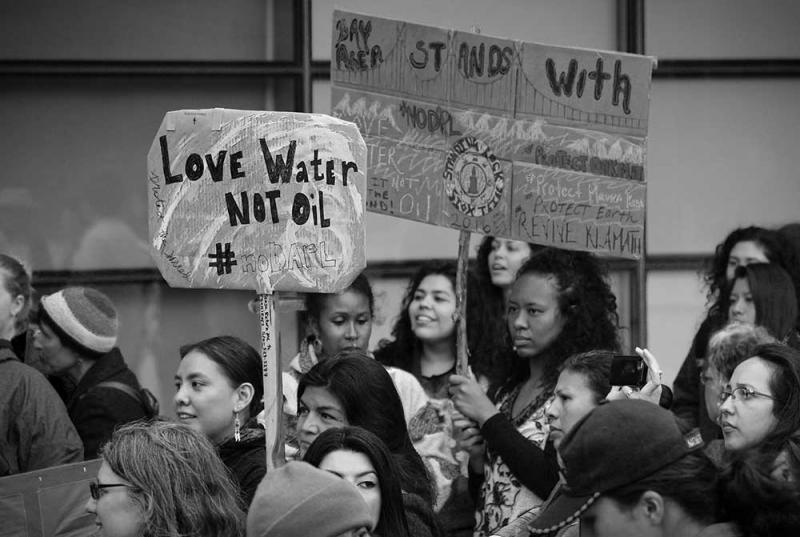Women human rights defenders (WHRDs) have been, and continue to be, at the forefront of struggles worldwide to challenge inequality and economic and political systems based on natural resource extraction, labour exploitation and multiple forms of discrimination.
Whether it is those protesting the Dakota Access Pipeline in the United States; indigenous communities resisting the Agua Zarca dam project in Honduras; or the Niger Delta where women continue to challenge oil exploration by international oil companies; corporate abuse has cost many activists their lives, including women human rights defenders like Berta Cáceres struggling for the defense of their communities and their territories.
Understanding the scale and scope of corporate power can be overwhelming.
A research report conducted by AWID and the Solidarity Center outlines the ways in which large national and transnational corporations are impacting the lives of women and oppressed peoples. This impact is huge, as evidenced by the fact that 63% of the top 175 global economic entities are transnational corporations, not countries.
The multiple ways in which corporate power is practiced and exercised depicts a perverse system in which states, the media and military groups are often complicit in maintaining oppressive power.
Confronted with escalating corporate power, WHRDs and other oppressed groups are continuing to resist through their movements. The report ‘Challenging corporate power: Struggles for women’s rights, economic and gender justice’ highlights five stories of struggle that illustrate with concrete examples how women and oppressed groups around the world have the power to challenge the dominance of corporations.

Each struggle uses works across diverse social justice movements to defy corporate power.
In Cambodia, for example, young women are hired by one of the largest brewery company worldwide -Cambrew Ltds- to promote their beers in restaurants and bars. This is a largely informal sector in which workers often face poverty wages, sexual harassment and violence, long working hours and toxic working conditions. Women trade union leaders within the Cambodian Food Service Workers Federation (CFSWF) managed to mobilize thousands of beer promoters to strike despite intimidation from the company and the State. The action ultimately brought about significant change in wages and the formalisation of dozens of beer promoters. The struggle continues for a living wage of USD177 per month and a change in working hours that would allow for child care facilities to support women’s work.
In another example from South Africa, activists from the Treatment Action Campaign fought against State denial of the HIV and AIDS pandemic and big pharmaceutical companies including GlaxoSmithKline and Boehringer that denied access to generic drugs and effective treatment through the public health system. Using a combination of political and economic education and mass-based actions such as pickets and marches, TAC was able to mobilize 200,000 people, many of whom were living with HIV and AIDS. TAC sought to highlight the feminization of the HIV and AIDS pandemic, as it was Black South African women who were most at risk. The two transnational companies agreed to allow generic companies to sell their medicines both in South Africa and other African countries. The use of the legal system against these large transnational drug companies proved effective in reaffirming the right to health over corporate profits and set an international precedent.
The recommendations and reflections emerging speak to how women trade unionists, Lesbian, Bisexual, Transgender, Queer and Intersex (LBTQI) activists, feminists, indigenous women and women human rights defenders can sustain their victories by consolidating the power within their movements, nurturing collective power with other social movements, and exerting power over corporations and governments acting in their interest.
